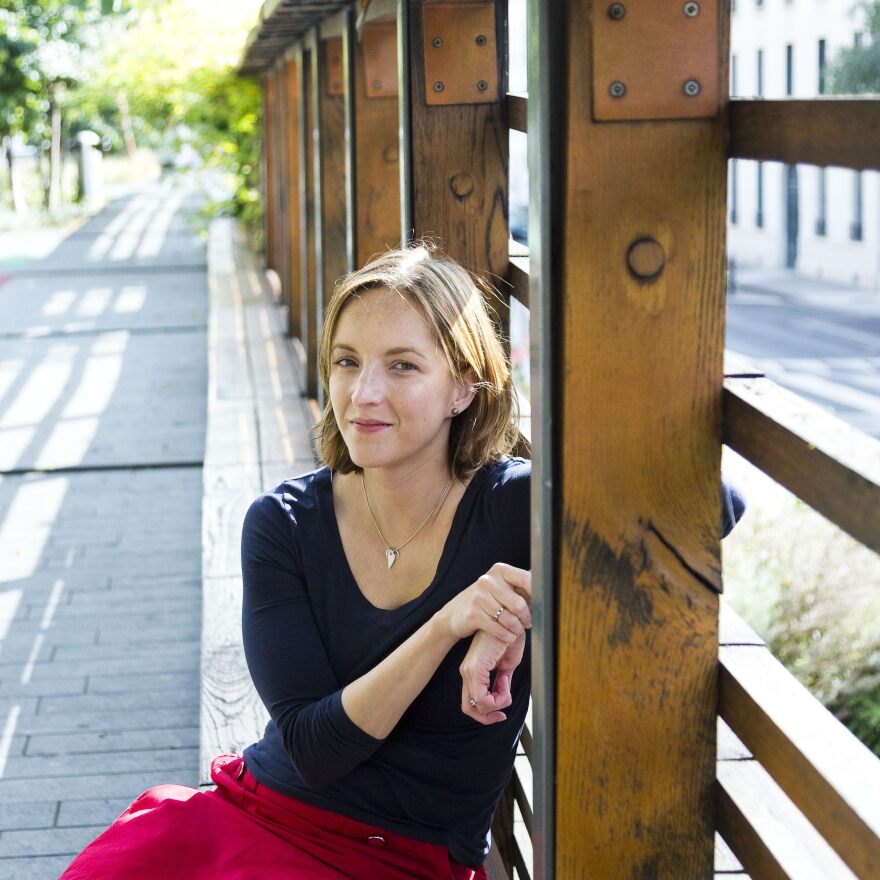Don't pay too much attention to the shifty eyes in the old portrait. Same goes for the mysterious tapping down the hall of the vast family manor — and, for that matter, the secrets lurking in its attic. Don't even be fooled by the ghost.
The Hundred-Year House may be crowded with the tropes and tricks of classic horror, but make no mistake: It's not a horror story. Rebecca Makkai's style, a patchwork of ambition and aw-shucks charm, lets in just enough sunlight to scatter those things that go bump in the night.
This ought to come as a relief to Zee and Doug, the couple center stage as the novel opens. They've just moved into the coach house at the Laurelfield estate, a heap of an heirloom passed down to Zee's socialite mother, and a fright-fest would only add to their already lengthy list of headaches.
Take, for instance, the estate itself — an embarrassing fit for a Marxist academic like Zee. Then you have to consider her obnoxious stepbrother Case, who shoulders into the little coach house early on with his wife Miriam. And pity Zee's poor husband Doug, who, as we meet him, is observing "a respectful silence for the death of both his career and the last shred of his manhood" — an occupational hazard, it seems, for any Ph.D. smothering his dreams with work on a kiddie book series called Friends for Life.
But, in a clue to the kinds of twists still to come, Doug's dreams aren't quite so dead as they first appear. Laurelfield, after all, was once an artists' colony, playing host to painters and poets like the obscure Edwin Parfitt, the man about whom Doug would really prefer to be writing. After the plot idles awhile in the early going, a few helpful nudges from Miriam set Doug moving — and, finally, the quest is on to dredge up records of Parfitt's colony days.

That's the funny thing about beginnings in the book: More often than not, they arrive fashionably late. So many of Makkai's characters are fickle and twistable, exposed to change as if to a high wind. It's easy to get lost in their remaking, to forget their old shapes and embrace them as new. Here, names are not so much anchors as tags, disposable tokens to be picked up and put down with the right amount of effort. In Makkai's telling, the world brims with reinvention, the next start almost as close as the next footstep. Even the book's prologue shows up in a spot you might not expect it.
This principle extends to Makkai herself. As a guiding hand, she's restless and, happily, always ready to indulge that restlessness. This is true not only of the book's structure, which opens at the end of the 20th century and leaps backward into the past at intervals. It's true also within each section, as her chapters shift weight from one character's perspective to the next. And she manages the changes subtly. I often found myself so convinced by the assumptions of a character that I'd take them for facts — at least, until the next chapter convinced me otherwise. It takes a special trick to remake the world without a reader noticing; it takes a tremendous talent to do it again and again.
Laurelfield may be haunted — so they say — but perhaps The Hundred-Year House is better summed up in myths than in monsters. A poem by Edwin Parfitt, that elusive target of Doug's research, retells the Greek myth of Proteus, the god who could change his shape to escape telling others of the future he knew. "Parfitt had twisted it, though," Doug notes. "Parfitt's Proteus changed to avoid remembering the past."
Here, Makkai gives the myth another twist. As restless, and as sly, as the mythical Proteus, she nimbly remakes her novel at every turn — but she does so with another goal in mind. Sometimes, she seems to say, the only way to get your mind around the past is just to step ahead to a new beginning.
Colin Dwyer is a producer for NPR.org and All Things Considered.
Copyright 2023 NPR. To see more, visit https://www.npr.org.







